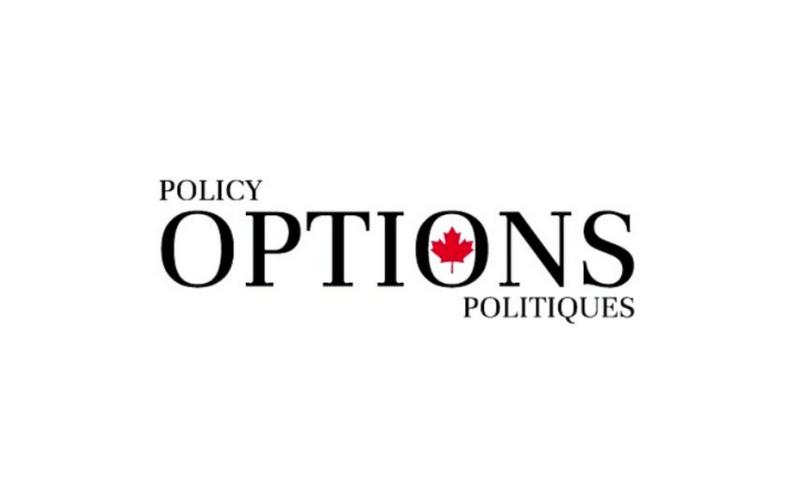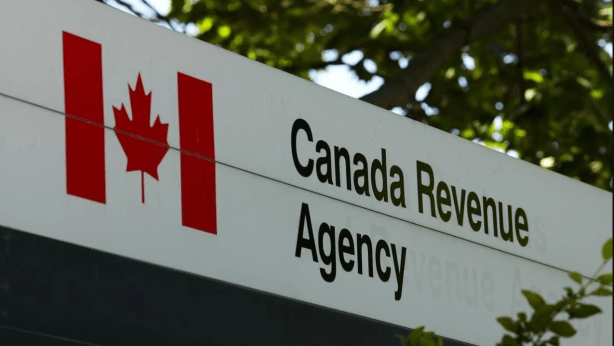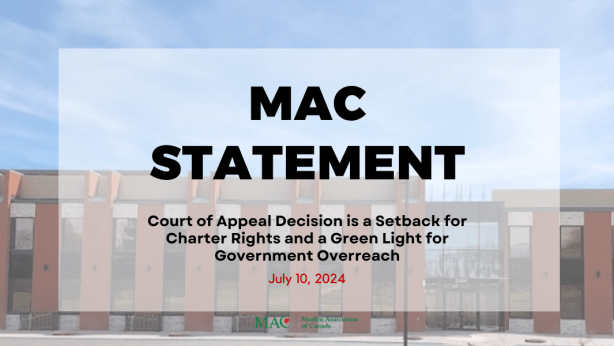The ripple effects of invoking draconian laws must not be ignored

January 30, 2023 | By Abdul Nakua
Antiterrorism laws have broadened the powers of government and its agencies. It’s time to examine their necessity and address their abuses.
After six weeks of public hearings, the public inquiry into the use of the Emergencies Act came to a close on Nov. 26, 2022, after a marathon of 300 hours of testimony and 9,000 exhibits, and more than 70 witnesses. Announced on April, 25, 2022, the Public Order Emergency Commission, led by Justice Paul Rouleau, was mandated to examine and assess the basis for the government’s decision to declare a public order emergency, and the appropriateness and effectiveness of the measures selected by the government to deal with the situation. The Emergencies Act was designed to balance the maintenance of public order with the protection of civil liberties.
Around the same time but with much less fanfare and public exposure, an obscure inquiry was being conducted by the Senate’s Human Rights Committee, chaired by Senator Salma Ataullahjan, looking at systemic biases and Islamophobia. Despite the obvious differences between the two inquiries, there are many threads that connect their relevance for Canadians.
Both examine the extent of damage that can result from the use of government discretion when applying draconian laws such as the Emergencies Act or antiterrorism laws. It is puzzling, however, that antiterrorism laws have not attracted attention or generated much concern among Canadians despite their intrusion into the civil liberties space.
Since their introduction post 9/11, antiterrorism laws have broadened the executive power of the government with little or no oversight. They have introduced permanent changes to the Criminal Code, the Official Secrets Act, the Privacy Act and the Canada Evidence Act, giving the government and its agencies far-reaching powers in the process. A new Crown corporation, the Canadian Air Transport Security Agency was created in 2002. The Financial Transactions Reports Analysis Centre of Canada (FINTRAC) was given antiterrorist financial tracking responsibilities.
Then in 2015, the Anti-Terrorism Act (Bill C-51) underwent a major overhaul under the Harper government resulting in a massive expansion of state power without oversight or safeguards. More than 100 Canadian law professors warned that this bill was a “dangerous piece of legislation.” There were fears that the changes would erode democratic checks and balances, weaken the established guarantees of the rule of law and infringe on civil liberties. These fears will only grow with the increased pervasiveness of digital technology and growing sensitivities around privacy and surveillance.
But despite these fears and many protestations, the antiterror laws have proven remarkably resistant to amendments or repeal. Various governments of different political persuasions lacked either the will or the aptitude, or both, to change course. The only positive amendment adopted a more robust government oversight framework in 2019. The National Security Intelligence Review Agency was created to review the activities of the Canadian Security Intelligence Service and the Communications Security Establishment as well as other national agencies and departments like the RCMP and the Canadian Border Services Agency.
More than 40 years ago, the Commission of Inquiry Concerning Certain Activities of the Royal Canadian Mounted Police (also known as the McDonald Commission) concluded that security and intelligence agencies in Canada must be assessed on both the effectiveness as well as the conformity with the requirements of democracy. It declared that a responsible government must abide by the rule of law and guarantee the freedom of legitimate political dissent. It made clear that these principles must not be compromised, whittled down or balanced off for the sake of convenience in applying security measures.
Ironically, the government may have compromised the McDonald Commission standard in its pursuit of a risk-avoidance counter-terrorism approach. Despite that, there was no desire by the government nor any sustained pressure by the civic society to examine the necessity of these laws, their effectiveness or the potential arbitrariness in their application despite the consequences for individuals, organizations and the country as a whole.
Such an independent examination and impartial assessment of the antiterrorism laws should be of the same, if not higher, priority than that for the Emergencies Act. This is because, unlike the War Measures Act or the Emergencies Act, the antiterrorism laws are permanent rather than emergency legislations.
Arbitrary arrests, no-fly lists, security certificates, citizenship revocations, delisting of charitable organizations, increasing surveillance and deteriorating personal privacy along with the blurring of lines between lawful dissent and illegal activities are part of the legacy of those laws.
The impact is etched in the memory of many Canadians whose lives were altered due to these laws. For instance, the Iacobucci and O’Connor inquiries provide an account of the effect of inaccurate intelligence sharing practices by Canadian security agencies. Both inquiries exposed the lack of civilian oversight on our national security.
Some people continue to live in limbo under the system of security certificates, which the Supreme Court of Canada ruled unconstitutional. Even when updated to meet the constitutionality test, the court found this regime is more advantageous for the state than criminal proceedings.
Canadian no-fly lists continue to interfere with mobility rights of many Canadians. While the government has not released the number of people enlisted, the number could be as high as 100,000 entries, according to one estimate. However, more than 850 Canadians have been assigned promise codes to avoid no-fly list false flags as of early 2022.
After six weeks of public hearings, the public inquiry into the use of the Emergencies Act came to a close on Nov. 26, 2022, after a marathon of 300 hours of testimony and 9,000 exhibits, and more than 70 witnesses. Announced on April, 25, 2022, the Public Order Emergency Commission, led by Justice Paul Rouleau, was mandated to examine and assess the basis for the government’s decision to declare a public order emergency, and the appropriateness and effectiveness of the measures selected by the government to deal with the situation. The Emergencies Act was designed to balance the maintenance of public order with the protection of civil liberties.
Around the same time but with much less fanfare and public exposure, an obscure inquiry was being conducted by the Senate’s Human Rights Committee, chaired by Senator Salma Ataullahjan, looking at systemic biases and Islamophobia. Despite the obvious differences between the two inquiries, there are many threads that connect their relevance for Canadians.
Both examine the extent of damage that can result from the use of government discretion when applying draconian laws such as the Emergencies Act or antiterrorism laws. It is puzzling, however, that antiterrorism laws have not attracted attention or generated much concern among Canadians despite their intrusion into the civil liberties space.
Since their introduction post 9/11, antiterrorism laws have broadened the executive power of the government with little or no oversight. They have introduced permanent changes to the Criminal Code, the Official Secrets Act, the Privacy Act and the Canada Evidence Act, giving the government and its agencies far-reaching powers in the process. A new Crown corporation, the Canadian Air Transport Security Agency was created in 2002. The Financial Transactions Reports Analysis Centre of Canada (FINTRAC) was given antiterrorist financial tracking responsibilities.
Then in 2015, the Anti-Terrorism Act (Bill C-51) underwent a major overhaul under the Harper government resulting in a massive expansion of state power without oversight or safeguards. More than 100 Canadian law professors warned that this bill was a “dangerous piece of legislation.” There were fears that the changes would erode democratic checks and balances, weaken the established guarantees of the rule of law and infringe on civil liberties. These fears will only grow with the increased pervasiveness of digital technology and growing sensitivities around privacy and surveillance.
But despite these fears and many protestations, the antiterror laws have proven remarkably resistant to amendments or repeal. Various governments of different political persuasions lacked either the will or the aptitude, or both, to change course. The only positive amendment adopted a more robust government oversight framework in 2019. The National Security Intelligence Review Agency was created to review the activities of the Canadian Security Intelligence Service and the Communications Security Establishment as well as other national agencies and departments like the RCMP and the Canadian Border Services Agency.
More than 40 years ago, the Commission of Inquiry Concerning Certain Activities of the Royal Canadian Mounted Police (also known as the McDonald Commission) concluded that security and intelligence agencies in Canada must be assessed on both the effectiveness as well as the conformity with the requirements of democracy. It declared that a responsible government must abide by the rule of law and guarantee the freedom of legitimate political dissent. It made clear that these principles must not be compromised, whittled down or balanced off for the sake of convenience in applying security measures.
Ironically, the government may have compromised the McDonald Commission standard in its pursuit of a risk-avoidance counter-terrorism approach. Despite that, there was no desire by the government nor any sustained pressure by the civic society to examine the necessity of these laws, their effectiveness or the potential arbitrariness in their application despite the consequences for individuals, organizations and the country as a whole.
Such an independent examination and impartial assessment of the antiterrorism laws should be of the same, if not higher, priority than that for the Emergencies Act. This is because, unlike the War Measures Act or the Emergencies Act, the antiterrorism laws are permanent rather than emergency legislations.
Arbitrary arrests, no-fly lists, security certificates, citizenship revocations, delisting of charitable organizations, increasing surveillance and deteriorating personal privacy along with the blurring of lines between lawful dissent and illegal activities are part of the legacy of those laws.
The impact is etched in the memory of many Canadians whose lives were altered due to these laws. For instance, the Iacobucci and O’Connor inquiries provide an account of the effect of inaccurate intelligence sharing practices by Canadian security agencies. Both inquiries exposed the lack of civilian oversight on our national security.
Some people continue to live in limbo under the system of security certificates, which the Supreme Court of Canada ruled unconstitutional. Even when updated to meet the constitutionality test, the court found this regime is more advantageous for the state than criminal proceedings.
Canadian no-fly lists continue to interfere with mobility rights of many Canadians. While the government has not released the number of people enlisted, the number could be as high as 100,000 entries, according to one estimate. However, more than 850 Canadians have been assigned promise codes to avoid no-fly list false flags as of early 2022.
The FunctionaryThese are challenging times for public servants.
Get news and insights into the workings of the public service from veteran journalist Kathryn May. Delivered to your inbox.Your email
Your emailSUBSCRIBE
The effect of antiterrorism laws goes beyond just individuals. They are also responsible for shrinking the public sphere through overregulation and arbitrary and disproportionate targeting of charities. Canadian Muslim charities now face targeted audits from the Canada Revenue Agency (CRA), just as environmental groups did.

Abdul Nakua is an executive with the Muslim Association of Canada.

Policy Options is the digital magazine of the Institute for Research on Public Policy.


